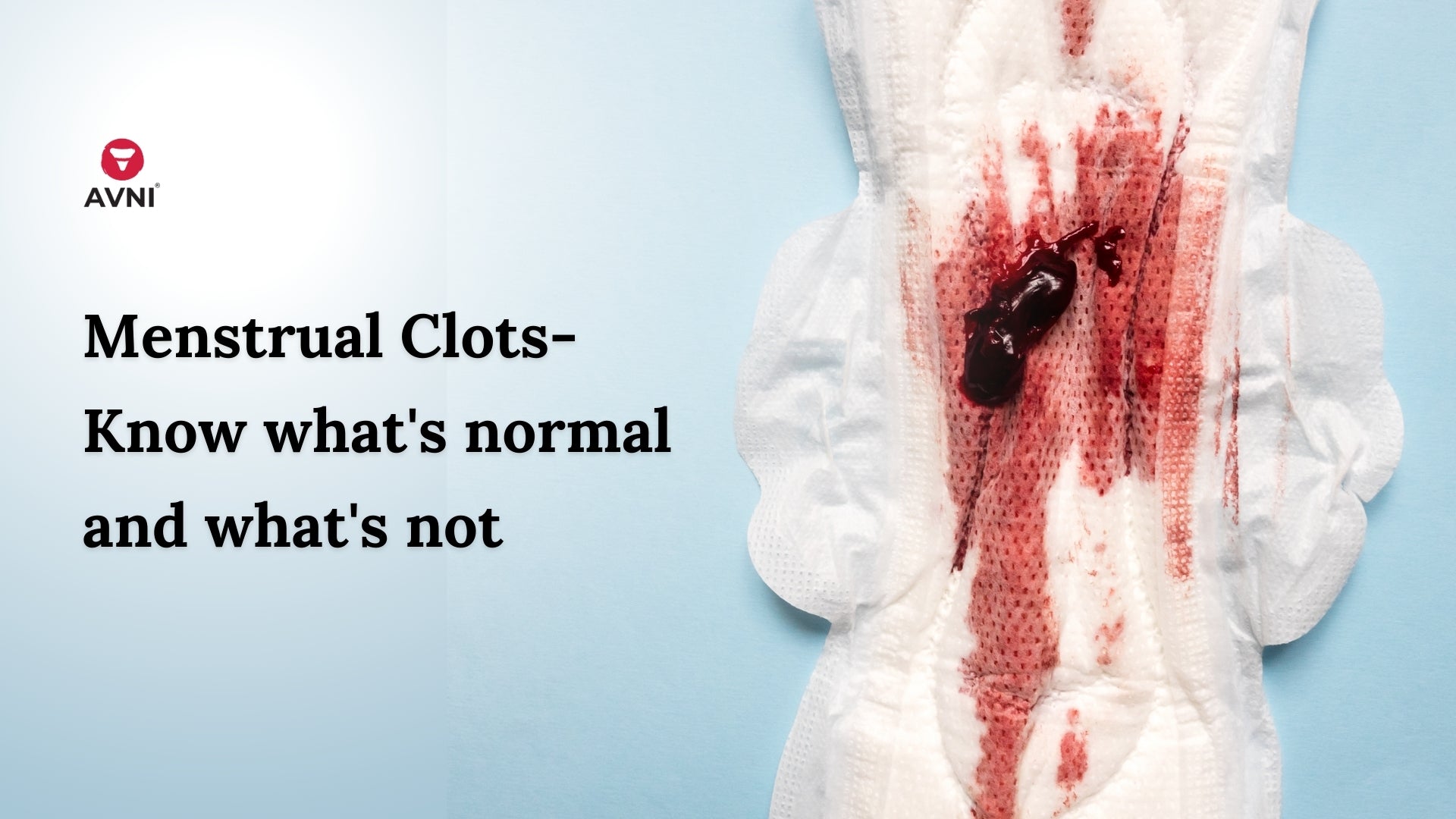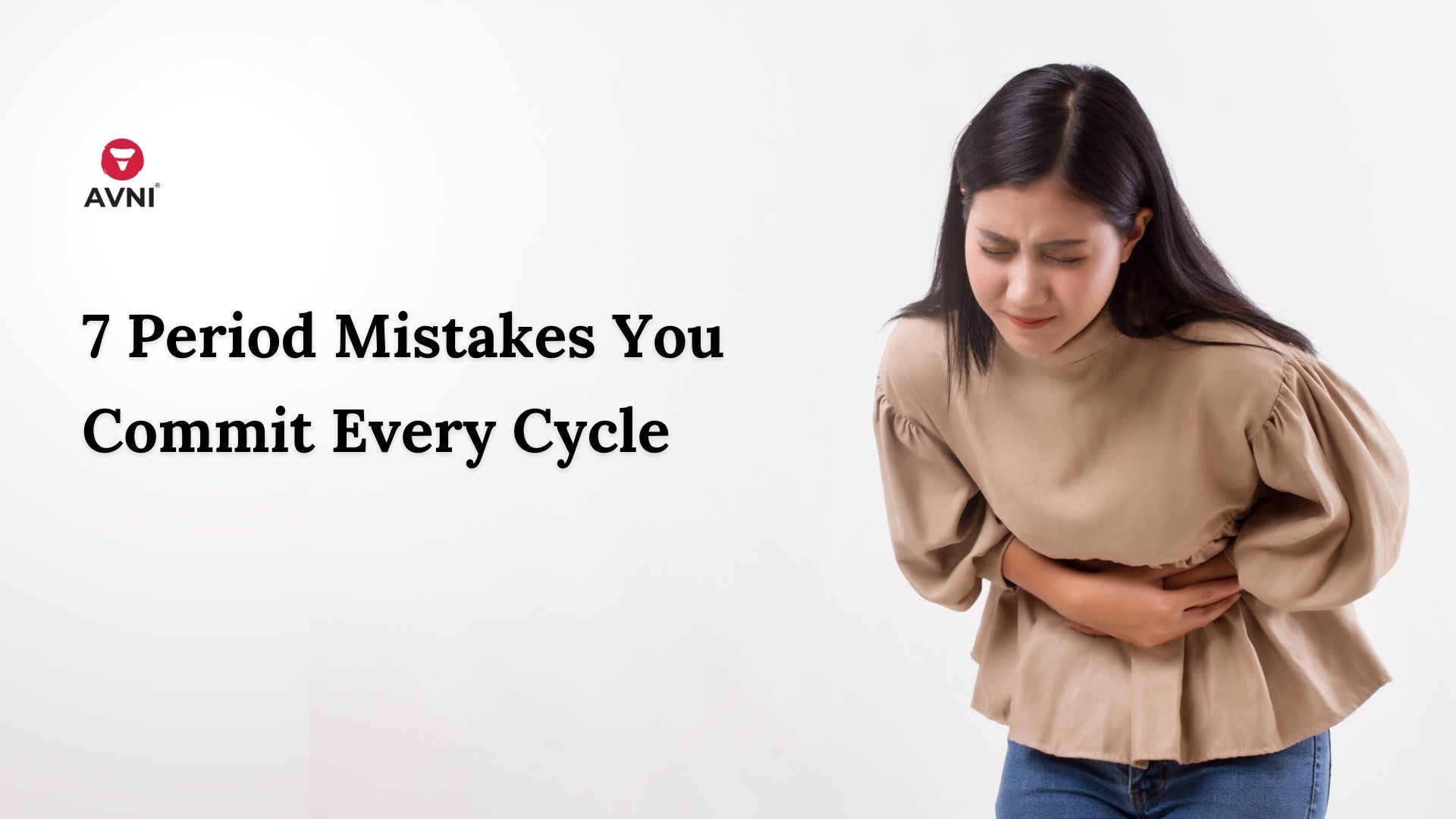
Menstrual Clots: What Is Normal, What Is Not & When to Worry?
Menstrual Clots: What Is Normal, What Is Not & When to Worry?
Have you noticed menstrual clots during your period? Are you wondering if those jelly-like blobs on your pads or tampons are normal?
This guide is for anyone who has seen some form of clotting in their menstrual flow and is concerned about it. Below, we explain what is normal, the different types of period blood clots, and what to do if you find them.
The Short Answer: Generally, small clots are normal. However, you should talk to your doctor if you have menstrual blood clots larger than 1 inch (2.5 cm) - about the size of a quarter.
What Forms a Menstrual Clot?
A menstruating person loses about 2-3 tablespoons (35-45 ml) of blood during a cycle. This blood includes the shed uterine lining - cells similar to skin cells, blood vessels, and glands.
Menstrual blood clots usually form during heavy bleeding. This happens because the body's anticoagulants, which keep blood thin, cannot keep up with the blood flow. As a result, coagulation occurs. These clots can look like chunks or clumps of blood with a jelly-like texture, varying in size and number.
What Does a Normal Period Blood Clot Feel Like?
Do you remember the brown scabs that formed on your knees when you scraped them as a child? That was a blood clot! Clotting is a natural way for the body to stop excessive blood loss.
Your body prevents too much menstrual blood loss by forming clots. The coagulation process uses plasma, the liquid part of the blood, and platelets, which are tiny blood cells that stick together.
Characteristics of Normal Clots:
- Size: Small clots, usually the size of a pea or smaller.
- Color: Dark red, blackish, or bright red.
- Timing: Common during the heaviest days of your flow (typically the first few days).
Note: Bright red blood means it is flowing quickly and hasn't had time to darken. Dark red or blackish clots are older blood that took longer to exit the uterus.
What Does an Abnormal Period Blood Clot Feel Like?
Abnormal menstrual clots often indicate Menorrhagia, a condition characterized by heavy menstrual bleeding that lasts more than seven days. If you are changing your pad or tampon every two hours or passing blood clots the size of a quarter (2.5 cm) or larger, your flow is heavy.

Common Causes of Abnormal Menstrual Clots
Large clots can result from various conditions based on your age and medical history:
Hormonal Imbalance:
Conditions like Polycystic Ovary Syndrome (PCOS), menopause, perimenopause, and hypothyroidism can cause irregular shedding of the uterine lining, leading to heavy bleeding and clots.
Uterine Fibroids:
These are noncancerous growths in the uterus that often cause heavy bleeding.
Endometriosis:
This condition occurs when tissue similar to the uterine lining grows outside the uterus, attaching to organs like the ovaries and fallopian tubes.
Adenomyosis:
This happens when the uterine lining grows into the muscular walls of the uterus, often causing swelling and heavy flow.
Cesarean Scar:
Sometimes, abnormal bleeding can happen due to scarring from a previous C-section.
Pregnancy Complications:
- Miscarriage: Heavy bleeding with clots can signal pregnancy loss.
- Ectopic Pregnancy: A serious condition where the embryo implants outside the uterus.
- Cancer: While less likely, cancer of the cervix or uterus can cause clots.
Complications: Anemia and Fatigue
Periods with heavy bleeding and large clots are a common cause of iron deficiency, known as anemia. Losing too much blood means your body lacks the red blood cells necessary for carrying oxygen.
Symptoms of Iron Deficiency:
- Weakness
- General fatigue
- Shortness of breath
- Pale skin
When to See a Healthcare Provider?
It’s important to get medical attention if you have any of the following symptoms alongside your period:
- Large Clots: Blood clots larger than a quarter (about 2.5 cm).
- Heavy Volume: Bleeding that requires you to change pads or tampons every 1-2 hours.
- Duration: Bleeding that lasts more than 7 days.
- Pain: Severe abdominal pain with nausea or vomiting.
What to Expect at the Doctor
When you consult a healthcare provider about period blood clots, they will likely ask:
- How big are the clots?
- How heavy is your flow, and how long does it last?
- Have you ever been pregnant or had pelvic surgery?
- Are you currently using birth control?
Your doctor may recommend tests like blood work, an ultrasound, or a hysteroscopy to find the underlying issue.
Treatment Options for Heavy Clotting
Treatment will depend on the diagnosis, but common options include:
- Hormonal Medication: To stabilize hormone levels and manage bleeding.
- Birth Control: Progestin-containing IUDs or birth control pills can significantly reduce flow.
- NSAIDs: Nonsteroidal anti-inflammatory drugs can help ease cramping and excessive bleeding.
- Blood Clotting Medication: For those who cannot take hormones.
Bottom Line
Is it normal to see menstrual clots?
Yes, small clots, about the size of a pea, are normal and acceptable.
However, you should see a doctor if the blood clots are larger, similar to the size of a quarter or a lemon. Early diagnosis through ultrasound can help identify the cause of excessive bleeding and improve your menstrual health.
Frequently Asked Questions (FAQs)
Q1: Is it normal to have jelly-like blood clots during my period?
A: Yes, passing small, jelly-like clots is generally normal, especially during the first few days. However, synthetic pads can sometimes cause overheating or trap moisture, making the flow feel more uncomfortable than it needs to be. Many women find that switching to breathable, chemical-free options like Avni's Natural Cotton Sanitary Pads helps them monitor their flow better and reduces that "heavy" feeling associated with plastic-based products.
Q2: What causes large blood clots during a period?
A: Large clots typically indicate a heavy flow (menorrhagia) where the blood is leaving the body faster than the anticoagulants can work. To manage this effectively without the fear of leaks, we recommend using the Avni Menstrual Cup. Unlike pads that just absorb, the cup collects the flow and can hold 3x more blood, giving you up to 12 hours of leak-proof protection even on your heaviest clot days.
Q3. When should I be worried about period clots?
A: You should consult a doctor if clots are consistently larger than a quarter (approx. 2.5 cm). In the meantime, ensure your hygiene products aren't adding to the problem. Some users report that switching to Avni Lush Reusable Cloth Pads helped them distinguish between actual heavy clotting and the irritation caused by synthetic chemicals in standard pads. If the large clots persist despite using natural products, seek medical advice.



Leave a comment
This site is protected by hCaptcha and the hCaptcha Privacy Policy and Terms of Service apply.